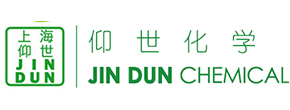Hydrogen energy is currently the fastest growing industry in the world in terms of investment
2023/6/21
On June 18, a building similar to a gas station in red and blue tones was standing out under the blue sky and white clouds beside Hwazhong Avenue in Changshou Economic Development Zone, Chongqing.
"This is the first local hydrogen mother station, which can meet the hydrogen demand of 20 hydrogen refueling stations in the 'Chengdu-Chongqing Hydrogen Corridor'." Zhou Changgui, an expert of Sinopec Chongqing Chuanwei Chemical Company, told reporters that Sinopec Group, which is striving to build "China's No. 1 hydrogen energy company", plans to build 1,000 hydrogen refueling stations like this one by 2025.
According to the China Hydrogen Energy Alliance, the output value of China's hydrogen energy industry will reach 1 trillion yuan by 2025, and in 2050, hydrogen energy will account for more than 10% of China's terminal energy system, and the annual output value of the industry chain will reach 12 trillion yuan. According to the data of SkyEye, there are more than 3,060 hydrogen energy-related enterprises in China. Among them, more than 580 new enterprises will be registered in 2022, with a growth rate of 24.8%, and more than 130 new enterprises will be added from January to May of this year.
A strategic opportunity period for rapid development
Since 2006, more than 80 policies related to hydrogen energy have been released at the national level. At present, 30 provinces (municipalities and autonomous regions) have written hydrogen energy into the 14th Five-Year Plan, and more than 10 provinces (municipalities and autonomous regions), such as Beijing, Shanghai, Tianjin and Henan, have issued special plans related to hydrogen energy.
The "White Paper on Hydrogen Energy and Fuel Cell Industry in China" predicts that in 2030, the average annual demand for hydrogen will be about 35 million tons, and hydrogen will be transported in large scale over long distances; in 2050, the demand for hydrogen will be nearly 60 million tons, and there will be more than 10,000 hydrogen refueling stations nationwide, and hydrogen will be widely used in transportation and industry.
Hydrogen energy is called "the ultimate energy of the 21st century". According to the "Research Report on the Future Development Trend of Hydrogen Energy" released by the International Hydrogen Energy Committee, the global demand for hydrogen energy will increase to 10 times of the current one in 2050, and the output value of the global hydrogen energy industry chain will exceed 2.5 trillion dollars.
It is understood that under the background of the construction of the twin-city economic circle in Chengdu and Chongqing, Sichuan and Chongqing will join hands to promote the construction of hydrogen highway between key cities and promote the formation of the "hydrogen corridor" of the whole industrial chain of hydrogen energy "production, storage, transportation, processing and use" in Sichuan and Chongqing.
According to the person in charge of Chongqing Development and Reform Commission, it is expected that by the end of the year, the city's hydrogen energy automobile industry cluster, from hydrogen production, hydrogen refueling, key core components supporting to the manufacturing of complete vehicles, will begin to see the scale. By then, Chongqing will have built 10 hydrogen refueling stations, promoted 1,000 hydrogen fuel cell vehicles for demonstration operation, fostered more than 50 enterprises in the hydrogen energy vehicle industry chain, and realized an annual output value of more than 10 billion yuan.
"This makes us see the great opportunity to develop hydrogen energy." Zhou Changgui said that Chuanwei Chemical has formulated a plan to develop hydrogen energy, that is, using variable pressure adsorption (PSA) technology to physically purify the crude hydrogen, and the purity of the purified hydrogen can reach 99.999%, which is higher than the national standard of 99.97% hydrogen for hydrogen fuel cell vehicles. The purified high purity hydrogen can be used as hydrogen for hydrogen fuel cells and high purity hydrogen for industrial production to realize the efficient use of industrial "tail gas".
According to the Medium and Long-term Plan for the Development of Hydrogen Energy Industry (2021-2035), the number of hydrogen fuel cell vehicles in China should reach about 50,000 in 2025. Based on the characteristics of clean and efficient, hydrogen fuel cell vehicles have become an important grip for many countries around the world to build a "hydrogen energy society", and one of the important solutions for the high-quality development of the automobile industry, and many enterprises have accelerated the layout of this track.
"At present, the number of hydrogen fuel cell vehicles in China has exceeded 10,000, and the overall application is showing a rapid expansion." Mao Zongqiang, a professor at Tsinghua University's Institute of Nuclear Energy and New Energy Technology and vice chairman of the International Hydrogen Energy Association, said that trucks are the absolute mainstay of the hydrogen fuel cell vehicle market, occupying more than 70 percent of the share.
SAIC Hongyan, located in Chongqing's Liangjiang New Area, is the first commercial vehicle company in China to devote itself to the research and development of hydrogen fuel cell technology, and its hydrogen heavy trucks have been listed as recommended models by several hydrogen demonstration cities, and will gradually land over 10,000 units in the next four years.
At the end of last year, Changan Automobile formally established "Changan Technology Company" and released Changan Hydrogen Fuel Cell System, officially entering into the field of hydrogen energy. In the next five years, Changan Auto will also launch two to three hydrogen fuel cell passenger cars.
The reporter learned from Changan Automobile that the Changan hydrogen fuel cell system adopts the first water and gas heterogeneous side reactor design in China, reducing the length of the pipeline bundle by 20%. The self-developed full-variable decoupling high-precision control technology improves hydrogen-electricity conversion efficiency by 62%, feeds hydrogen consumption of 0.65kg for 100km, and replenishes energy super fast in 3 minutes.
"Overall, with the support of the 'double carbon' target and various new energy policies, fueled by capital, collaborative industrial development, technological progress and infrastructure construction, China is likely to become the first country in the world to industrialize and commercialize fuel cell vehicles. " said Zhang Guoqiang, chairman of Beijing Yihuatong Technology Co.
Jiulongpo District is one of the nine districts and counties in Chongqing identified to accelerate the demonstration application of hydrogen fuel cells. In March this year, the city launched the construction of the first hydrogen refueling station and took the lead in promoting the development, production and application of hydrogen fuel cell vehicles in the city, and Qingling Automobile, located in Jiulongpo District, has now obtained the production qualification of hydrogen fuel cell vehicles.
The person in charge of Qingling Auto told reporters that the company is working with Bosch China to promote the development, demonstration operation and commercialization of hydrogen fuel cell vehicle products in an orderly manner. In May this year, four companies, namely Minsheng Logistics, Takitone Technology, Qingling Auto and Bosch Hydrogen Power, reached a cooperation agreement, under which Minsheng Logistics and Takitone Technology will purchase no less than 300 Qingling hydrogen fuel cell trucks equipped with Bosch Hydrogen Power system to build a business model innovation platform.
"Now we are going to attack heavy trucks and long-distance buses, and then expand to all kinds of heavy-duty vehicles, and then trains, ships and airplanes. This is the path to develop hydrogen energy." So said Professor Ouyang Minggao of Tsinghua University, an academician of Chinese Academy of Sciences.
The "Energy-saving and New Energy Vehicle Technology Roadmap 2.0" compiled by the Chinese Society of Automotive Engineering predicts that the number of hydrogen fuel cell vehicles will reach about 1 million by 2035, and there is huge space for future development.
It is urgent to accelerate the layout of the whole industry chain
At present, the production capacity of hydrogen fuel cell is going up quickly, but due to the lack of density of hydrogen refueling stations and the lack of medium and long distance hydrogen storage and transportation technology, it is difficult to effectively connect the hydrogen source and the application side, and in many areas, there are "expensive cars, expensive hydrogen, few stations and average range", and even "there are cars without stations and stations without gas The embarrassing situation is that "there are cars without stations and stations without gas".
In Mao Zongqiang's opinion, the future development of domestic hydrogen fuel cell vehicles still needs to work hard on the cost and supporting facilities, and it is hoped that relevant top-level design and national management standard can be established to accelerate the layout of the whole industry chain.
Hydrogen refueling stations are a key element affecting customer experience, but there are not many of them nationwide at present, and the core reason is that the downstream demand is not clear. If there is not enough demand to keep up it is difficult to reduce the cost, thus forming a loss, so some enterprises are not willing to invest.
"At present, the hydrogen energy industry has problems such as the small proportion in the new energy system, the weak industrial innovation ability, the level of technology and equipment to be improved, and the lack of rich industrial development forms and application scenes." Mo Yuanming, researcher of the Center for Collaborative Development of Chengdu-Chongqing Regional Twin Cities Economic Circle of Chongqing Industrial and Commercial University, said that it is still necessary to guide local governments and enterprises to aim at and serve national strategic needs, play the guiding role of medium- and long-term planning of hydrogen energy industry development, optimize the regional layout of hydrogen energy industry, strengthen scientific and technological innovation of hydrogen energy industry, enhance the core competitiveness of hydrogen energy industry, and promote the high-quality development of economy and society.
Dr. Ren Zeping, founder of Zeping Macro Business School, advocated "new infrastructure and new energy" in 2020, proposed "not investing in new energy now is like not buying a house 20 years ago" in 2021, and predicted in 2022 that "hydrogen energy, energy storage and smart driving will be the most important industries. In 2022, it is predicted that "hydrogen energy, energy storage and intelligent driving will be the new trillion-dollar track". "Hydrogen energy, energy storage, intelligent driving, these three new tracks are like new energy vehicles and lithium three or five years ago, in the eve of the explosion." He said.
JIN DUN CHEMICAL has built a special (meth) acrylic monomer manufacturing base in ZHEJIANG province. This makes sure the stable supply of HEMA, HPMA, HEA, HPA, GMA with high level quality. Our special acrylate monomers are widely used for thermosetting acrylic resins, crosslinkable emulsion polymers, acrylate anaerobic adhesive, two-component acrylate adhesive, solvent acrylate adhesive, emulsion acrylate adhesive, paper finishing agent and painting acrylic resins in adhesive.We have also developed the new and special (meth) acrylic monomers and derivatives. Such as the fluorinated acrylate monomers, It can be widely used in coating leveling agent, paints, inks, photosensitive resins, optical materials, fiber treatment, modifier for plastic or rubber field. We are aiming to be the top supplier in the field of special acrylate monomers, to share our rich experience with better quality products and professional service.

